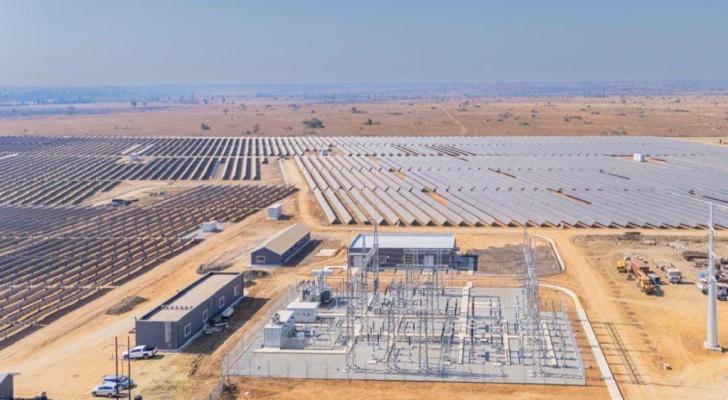News / National
Zimbabwe launches nationwide Presidential rural solarisation project
19 Dec 2024 at 17:02hrs |
1 Views

The Zimbabwean government has announced the launch of a nationwide Presidential Rural Solarisation Project aimed at providing sustainable renewable solar energy to rural households. The initiative, which targets approximately 200,000 rural beneficiaries annually, was approved by Cabinet during its latest meeting.
The project, presented by Minister of State Security Lovemore Matuke as chairperson of the Inter-Ministerial Committee, is expected to run for five years starting in 2025, benefiting households across Zimbabwe's eight rural provinces. According to the Cabinet briefing, the project is a key initiative to improve the livelihoods of rural communities by providing access to affordable solar energy, which will power essential gadgets such as light bulbs, radios, televisions, phone chargers, laptops, small refrigerators, submersible pumps, and WiFi.
The Rural Infrastructural Development Agency will oversee the implementation of the project, which will involve collaboration with experts from local universities. An Inter-Ministerial Steering Committee will manage the execution and ensure the project meets its goals. The government will finance the initiative, with support from other stakeholders, and will focus on providing advanced solar technologies, including batteries, inverters, solar panels, and cables.
One of the key components of the project will be the training of local youths and women to participate in the installation and maintenance of solar systems across rural districts and villages. This will not only provide essential energy access to rural communities but also create employment opportunities and build local capacity.
The Presidential Rural Solarisation Project is expected to significantly improve the quality of life in Zimbabwe's rural areas, providing reliable, affordable, and sustainable energy solutions, while contributing to economic empowerment and environmental sustainability.
The project, presented by Minister of State Security Lovemore Matuke as chairperson of the Inter-Ministerial Committee, is expected to run for five years starting in 2025, benefiting households across Zimbabwe's eight rural provinces. According to the Cabinet briefing, the project is a key initiative to improve the livelihoods of rural communities by providing access to affordable solar energy, which will power essential gadgets such as light bulbs, radios, televisions, phone chargers, laptops, small refrigerators, submersible pumps, and WiFi.
The Rural Infrastructural Development Agency will oversee the implementation of the project, which will involve collaboration with experts from local universities. An Inter-Ministerial Steering Committee will manage the execution and ensure the project meets its goals. The government will finance the initiative, with support from other stakeholders, and will focus on providing advanced solar technologies, including batteries, inverters, solar panels, and cables.
One of the key components of the project will be the training of local youths and women to participate in the installation and maintenance of solar systems across rural districts and villages. This will not only provide essential energy access to rural communities but also create employment opportunities and build local capacity.
The Presidential Rural Solarisation Project is expected to significantly improve the quality of life in Zimbabwe's rural areas, providing reliable, affordable, and sustainable energy solutions, while contributing to economic empowerment and environmental sustainability.
Source - online
Join the discussion
Loading comments…



























